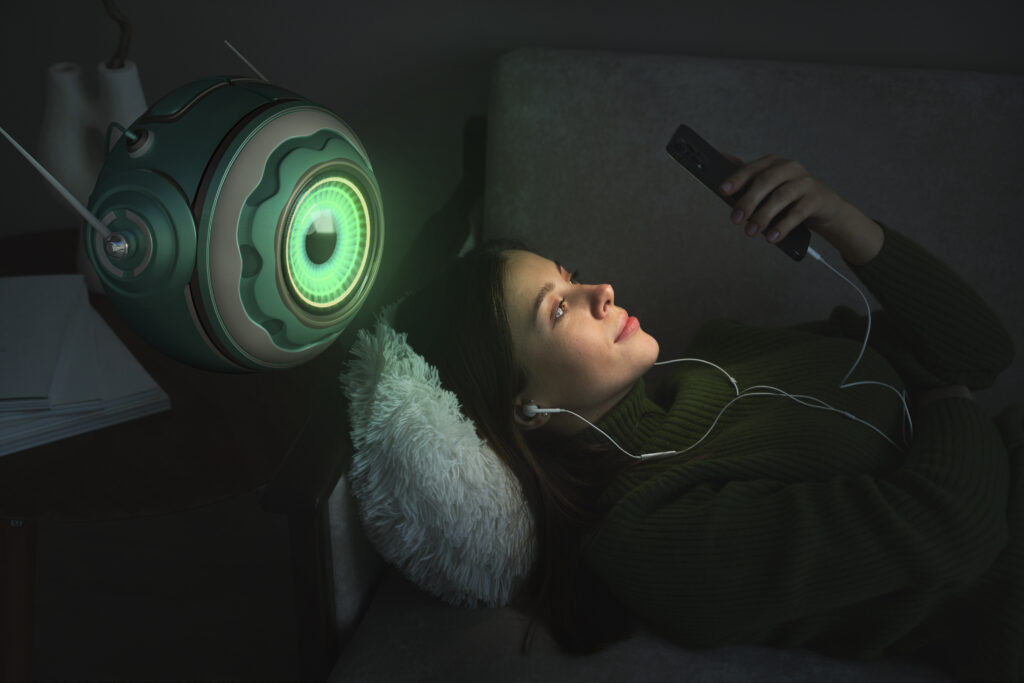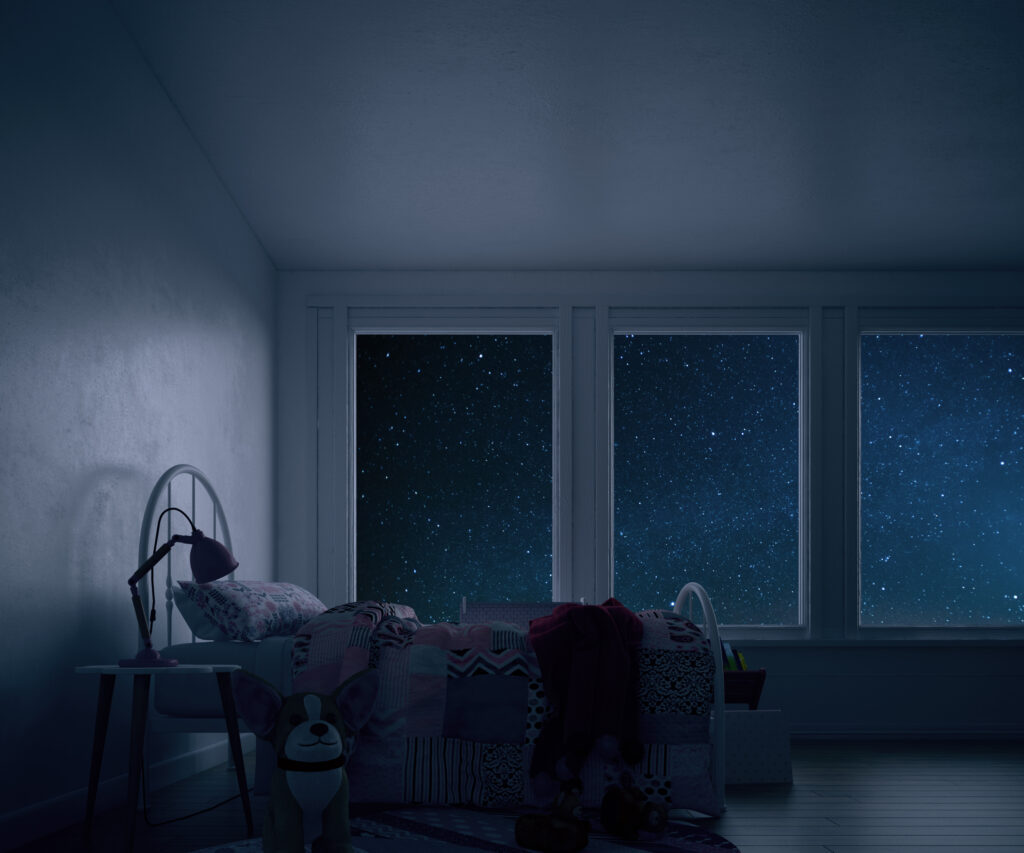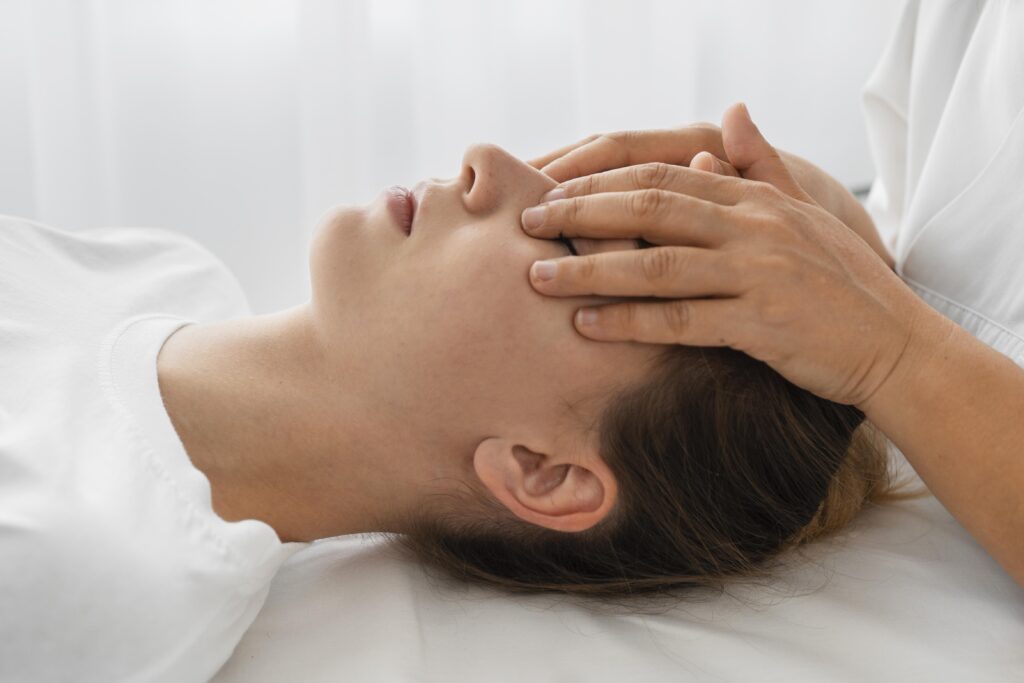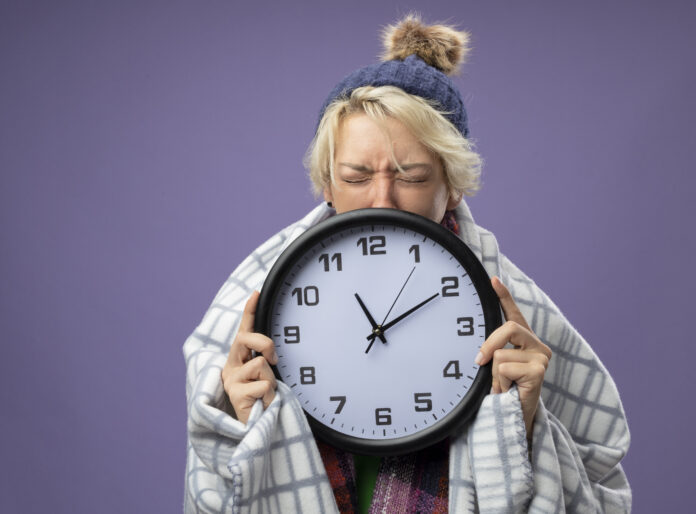Do you know about your sleep-wake cycle? It is called Circadian Cycle but it is not only related to sleep-awake cycle but also regulates the body temperature, hormone production and physiological processes over the period of 24 hours. Many external and internal factors influence your Circadian Rhythm. Temperature or the intensity of light are some external factors while genetics and the aging process are some internal factors. Let’s try to understand the significance of Circadian Rhythm because it is an essential stimulus for maintaining optimal health and your overall well-being.
What is a Circadian Rhythm?
Circadian is a Latin word and has the meaning “around the day” i.e. 24 hours. It guides your body and mind about sleeping and waking times and also involves multiple processes for the accomplishment of this task.
Feeling tired as the day passes and the sun starts to set, is the symbol of synchronized Circadian Rhythm with an internal clock of your body that functions to optimize the internal systems of your body. It plays an important role in regulating your sleep-wake cycle and determines when you feel active during the day when you feel sleepy and ready to go to bed.
In addition, it also regulates your body temperature and controls the fluctuations in hormone production that occur throughout the day. Our metabolism is also under the influence of Circadian Rhythm because many biological activities occur actively during day time but some functions properly at night.Various body functions are related to specific hormone production and the production of such hormones is also affected by Circadian Rhythm.
The Biological Clock: Circadian Rhythm works efficiently when coordinated to healthy sleep habits. If you sleep and awake according to your biological clock i.e. sleeping at same time at night and wake up at a fixed time in the morning. An irregular sleep pattern disrupts the Circadian Rhythm which results in different complicated health issues.
The Role of Light and Dark: Light and dark strongly affect the synchronization of biological clocks with circadian Rhythm. The high light intensity at night time disrupts your sleep and low light intensity during morning time induces feeling of tiredness and sleepiness. Thus your circadian rhythm gets disturbed and as a result you feel abrupt changes in your appetite, body temperature and alertness.
The Science Behind Circadian Rhythms
Your body’s sleep-wake cycle is naturally synchronized with the cycle of day and night but some factors may disrupt this coordination like traveling and underlying health issues. Maintaining a healthy circadian rhythm is possible by keeping your sleep time regular and taking exercise at proper time. To understand the scientific information about Circadian Rhythm, we will go through the headings below;
The Suprachiasmatic Nucleus (SCN): The suprachiasmatic Nucleus is a special structure found in hypothalamus(part of brain) and functions for regulating Circadian Rhythm in the body by developing synchronization among the biological clock and circadian cycle.
The Role of Melatonin: It is a hormone produced by your brain in response to darkness. It means Melatonin is produced during night, in the absence of light and induce the sleepy feelings to regulate the sleep-wake cycle but presence of light at night will reduce its production and your sleep time will be disturbed. Continuous exposure to light at night for a long time will cause insomnia.
Factors Influencing Your Circadian Rhythm
Circadian rhythm is a complex phenomenon and linked with our body’s clock it is influenced by different external as well as internal factors. Some of them are jotted below;
External Factors
Environmental factors which affect or have tendency to change your circadian rhythm are light exposure, temperature, work schedule and your lifestyle as well. Light Exposure: Irregular exposure to light such as light at night can easily disrupt your sleep-wake cycle. Our trusted source of information (CDC) has evaluated a fact that your circadian cycle is more alert minimum two hours before your regular sleep time and if you use bright light during this duration, it will disrupt your sleep timings. You will sleep after passing the actual or regular sleep time and wake up later in the morning, eventually shifting your circadian rhythm.
Light Exposure: Irregular exposure to light such as light at night can easily disrupt your sleep-wake cycle. Our trusted source of information (CDC) has evaluated a fact that your circadian cycle is more alert minimum two hours before your regular sleep time and if you use bright light during this duration, it will disrupt your sleep timings. You will sleep after passing the actual or regular sleep time and wake up later in the morning, eventually shifting your circadian rhythm.
Social and Work Schedules: Some people have to work at a different schedule than normal. They work at night and rest in the morning. Their sleep-wake cycle gets disturbed and loses rhythm.
Internal Factors
Like the external environment, the internal environment of the body also has some factors that disrupts or tends to change your circadian rhythm.
Genetics: Some people are morning lovers by birth and some are night owls, naturally. This genetic or by birth routine strongly impacts your circadian rhythm but studies show that this factor is not as influential as light exposure.
Age and Development: Sleep-wake cycles are different for different age groups. Age has a great influence on your circadian rhythm. Generally babies have short sleep-wake cycles while the elderly people wake up early and feel sleepiness early as the sun sets.
Balanced Circadian Rhythm
Circadian rhythm directly affects the functioning of major organ systems of your body. For instance, your Cardiovascular system, Coordination system, Digestive system, Immune system and Cognition system are linked with the circadian rhythm. Disturbance in circadian clock will affect the function of these body systems. It means your physical as well as mental health are linked with circadian cycle.
Physical Health
Disruption to circadian balance can lead to physical health issues like insomnia or cardiovascular diseases. It also has impacts on your immunity and metabolism. How? Let’s see!
Immune Function: Your immune system has natural killing cells like T cells and B Cells which fight against pathogens and infection causing agents. Your disrupted circadian rhythm, disturbed sleep patterns, exposure to artificial light at night and exercise near bedtime weakens your defense cells and eventually your immunity becomes weaker. Studies have proven that disruption in circadian rhythm also affects expression of genes involved in immune function.
Metabolism: Circadian Clock is responsible for regulating your metabolism by breaking down nutrients for the production of energy. Irregular sleep patterns lead to metabolic disorders like obesity and diabetes.
Mental Health
Circadian cycle is closely linked with your mental health and its disruption causes serious mental disorders like declined cognitive function, abrupt changes in mood, irritability and difficulty in concentration.
Mood Regulation: Production and transmission of neurotransmitters, such as Serotonin and Dopamine are disturbed due to disrupted Circadian Rhythm. Fluctuations in production of these hormones cause depression and anxiety which cause mood disorders.
Cognitive Function: Circadian cycle also regulates your cognitive capabilities like memory, decision making and learning power. Irregular circadian rhythm influences these cognitive functions and leads to impairment of cognitive function.
How to Optimize Your Circadian Rhythm
To maintain an overall well being, your circadian rhythm must be optimized. It can be done by developing routines that support better sleep patterns. A gland located in the brain named as Pineal gland, secretes a hormone Melatonin to govern the sleep times and its quality. Optimization of circadian rhythm also supports your metabolism and endocrine system. Thus it is essential to regulate your circadian cycle to be energized enough.
Establishing A Routine
Routines are helpful to regulate your moods and mental approach. You can stabilize your mental and physical health by establishing a routine that synchronizes with your circadian cycle. Try to keep a consistent, good and slightly dull routine to feel free from overthinking. This will limit the stress or pressure caused by overworked routine.
Consistent Sleep Schedule: This practice will help you to have a restorative sleep pattern which is a necessary tool for regulating your internal body clock. Go to bed and wake up at the same time daily whether it is a working day or not. This activity will enhance your alertness and make a strong bond between your circadian clock and biological clock.
Morning Light Exposure: Natural light supports your sleep-awake cycle and makes you alert in the morning. Spending your maximum time in natural light, especially during the morning will optimize your circadian rhythm.
Creating a Sleep-Conducive Environment
Establishing a peaceful and sleep-conducive environment in your bedroom is an effective tool to signal to your neurotransmitters about sleep time. Calming bedtime routine helps in preparation for sleep such as reading or listening to relaxing music. Bedroom Setup:
Bedroom Setup:
- Dark Environment: Darkness promotes the production of Melatonin, a sleep regulating hormone, to establish a regular sleep pattern. You can make your bedroom environment dark by using blackout blinds to block out lighting from street lamps.
- Comfortable Bedding: A comfortable mattress helps to promote peaceful sleep and softness of pillows provides cushion to adequate sleep.
- Easy Sleepwear: Always select breathable sleep wear to get relaxed during the night. This type of sleepwear is essential to regulate your temperature for a peaceful sleep.
- Cool Environment of the Room: You need a comfortable temperature for promoting regular sleep patterns. So try to set your bedroom thermostat at 60-65 degree Fahrenheit, so that you may feel comfortable. It is conducive to sleep.
- Quiet Environment: Your bedroom environment must be quiet and relaxing at night because noise can rupture your circadian clock and a quiet environment helps to upgrade your sleep quality.
Limiting Screen Time:
- Limit Stimulating Content: Limit the stimulating content before sleep time because social media apps, video games or work-related tasks on computer will destroy your sleep pattern and make it difficult to wind down before sleep.
- Mindfulness: Engage yourself in relaxing activities such as practicing relaxation techniques like meditation while listening to music or reading a book. This practice will help to signal your mind about the sleep time.
- Blue Light Exposure: Limit screen time. Approximately 2 hours before sleep you should leave your mobile, smartphone or tablet because the blue light coming from these devices interrupt with your sleep-inducing hormone production thus rupture your circadian Rhythm.
Circadian Rhythm Disorders and Treatments
Circadian Rhythm disorders are linked with both physical and mental health. These disorders are treated by regulating the sleep patterns and by optimizing the sleep-wake cycle. To achieve the circadian rhythm, the first aim is to align your sleep-wake cycle with your environment and nature of working. In most cases the treatment procedure depends on the severity of the disorder. So start the treatment by identifying the prevailing cause of circadian rhythm’s rupture.
Common Circadian Rhythm Disorders

Circadian cycle disorders are actually the bad condition of your body or brain due to disruption of your natural sleep-wake cycle. These are also known as Circadian Rhythm Sleep Disorders.
Delayed Sleep Phase Syndrome (DSPS): It is a Circadian Rhythm Sleep disorder and mostly found in children and teenagers. This disorder is characterized by delayed sleep-wake cycle. People with (DSPS) feel difficulty in falling asleep. They can’t sleep at regular bedtime and they have to struggle hard to wake up at proper time in the morning.This is a type of misalignment and can be treated by imposing a scheduled sleep-awake cycle and exposure to natural light.
Advanced Sleep Phase Syndrome (ASPS): Individuals with (ASPS) feel more sleepy than normal and fall asleep early in the evening and as a result they wake up very early in the morning. This disorder causes problems in occupational working. It is treated by medication and light therapy.
Treatment Options
Most of the Circadian Rhythm Disorders are treated through managing a regular sleep-wake cycle or by optimizing better sleep patterns but Light Therapy and Chronotherapy are also involved for the treatment of sleep disorders.
Light Therapy: Light Therapy is one of the many treatment strategies, which are used to regulate Circadian Rhythm. It involves exposure to natural bright light commonly in the morning to promote better sleep-wake cycle and reset the biological clock of the body. This will be more helpful for the individuals who have difficulty in falling asleep.

Chronotherapy: This is the gradual adjustment of the body’s internal clock to shift the duration of sleep-wake times over a period of weeks or days. People with the disorder of early sleep-wake cycle are treated with this therapy.







